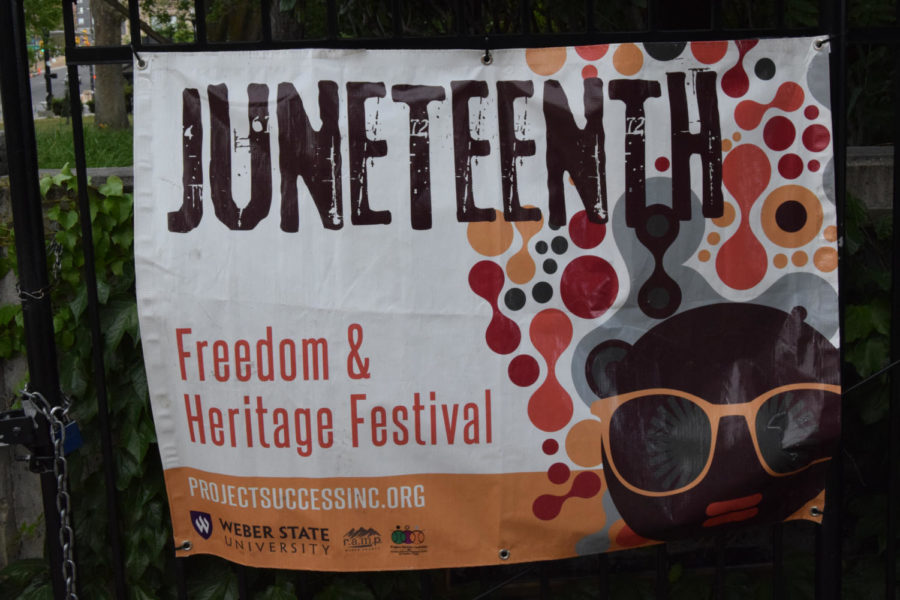Heroes and physicians take over Juneteenth celebration
Ogden’s 33rd annual celebration of Juneteenth took place on June 18 and 19. The festival is thrown to commemorate the emancipation of enslaved African Americans. This was done by honoring and supporting Black owned businesses, Black history displays, live performances and more that was showcased in the Ogden amphitheater.
This year’s special celebration marks the first year of celebrating Juneteenth after becoming a recognized state-wide holiday. Many businesses, some being African American owners, brought their spirits to recognize its importance.
Writer and author Kaushay Ford represented her business at the local fair. Ford writes children’s books based on heroes within Black history. Ford’s goal in writing is to display the power these Black heroes have in history.
“Wouldn’t it be great if more people knew about and looked up to people like her?” Ford said.
According to Ford, it is important to showcase what ‘real’ heroes look like, rather than fictional or unrealistic superheroes.
Ford and her husband, Spencer Ford, decided to make a difference by creating children’s story books, thus the “Little-Known Heroes” collection was created. These books can be found online through their website.
Just as Black-owned businesses were displayed, there were also informational stations available to help educate the public.
Dr. Richard Ferguson was present at the celebration and was representing the Black Physicians of Utah.
The Black Physicians of Utah organization is present to help people of color receive health care that is needed and to fight racial health disparities while unifying BIPOC in Utah’s medical industry.
Ferguson said having awareness of racial health disparities is the start for change, but awareness alone is not enough to see changes – there is a huge need for action.
“The action is going to have to occur with larger, privileged, white institutions and laws,” Ferguson said. “I think we’ll have to address our environment, education and access, because if people are able to at least have a job, they’re more likely to have insurance, more likely to have affordable, healthy food, and then they can do the same for their family.”
There is much to be heard and action to be made. Ford invites all to join the fight in supporting racial health disparities.









